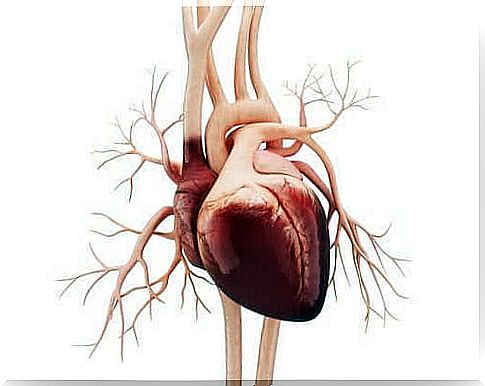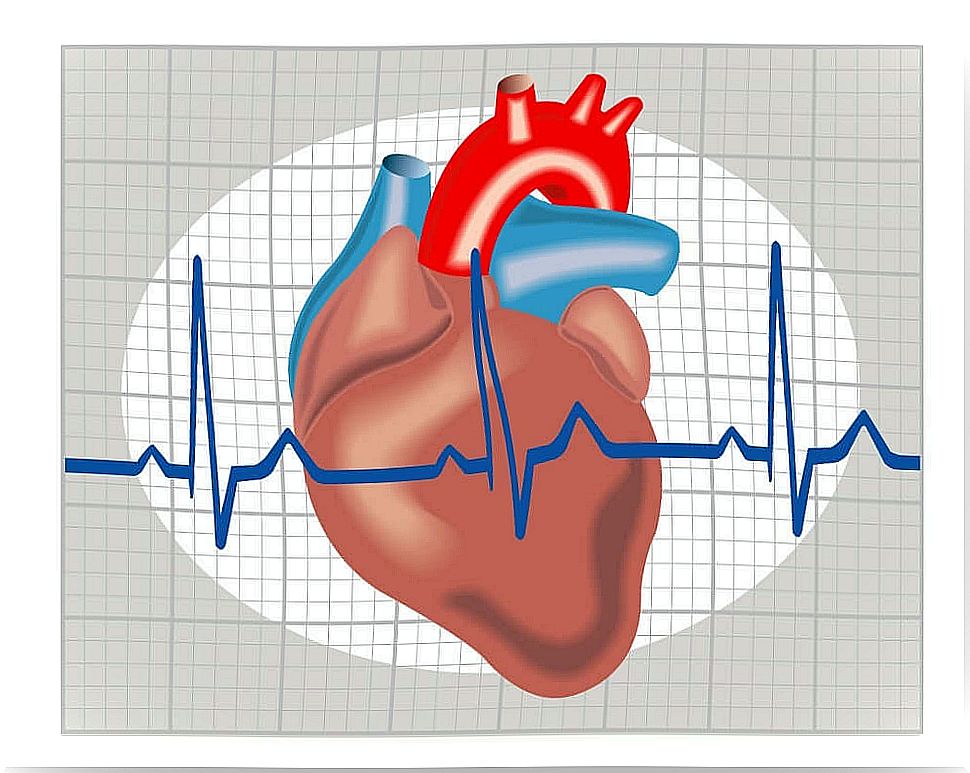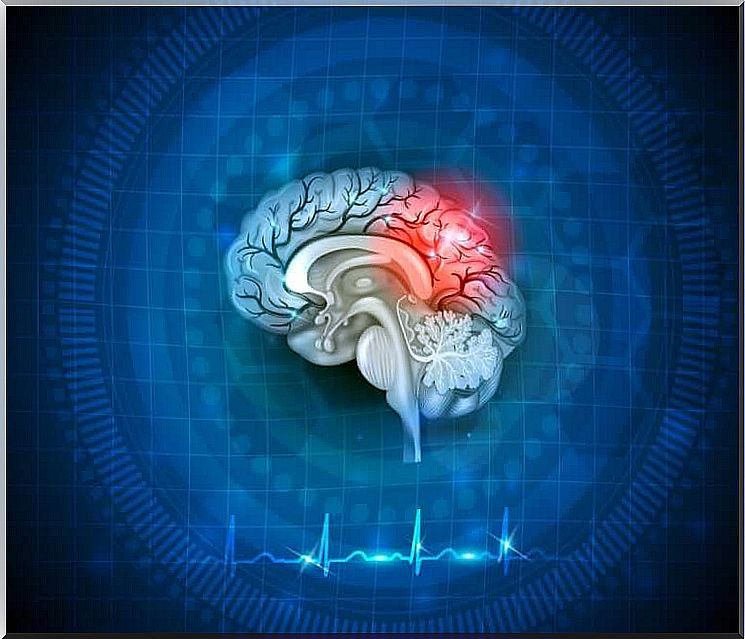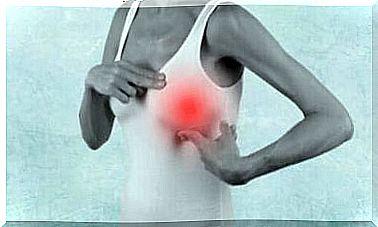Atrial Flutter: Symptoms And Causes
Atrial flutter can cause weakness, dizziness and a racing heart. Find out more about this arrhythmia today.

Atrial flutter is a cardiac arrhythmia that is almost always curable. The atria of the heart beat irregularly and too quickly. The electrical signal creates circling excitations in the atrium and this overstimulates the atria. These electrical signals are also passed on to the heart chambers. However, there is a protective mechanism and therefore only every second, third or fourth signal is passed on to the muscle cells of the chambers. As a result, the heart beats irregularly, too quickly and is less efficient than normal.
It is a relatively common cardiac arrhythmia that affects men over 60 years of age in particular. In today’s article, you can learn more about the symptoms and causes of this disorder.
Interesting facts about atrial flutter
Under normal circumstances, the atria and ventricles contract rhythmically and synchronously with an electrical impulse. This arises in the atrium and is then passed on to the heart chamber to produce a heartbeat.
The normal rate is between 50 and 100 heartbeats per minute. In the case of a cardiac arrhythmia, however, this mechanism accelerates. The heart contracts irregularly and if it beats more than 100 times per minute it is called a tachyarrhythmia.

What are the causes of atrial flutter?
Atrial flutter is very common in patients with heart problems. For example, it is more common in people with high blood pressure, ischemic heart disease, or cardiomyopathy. But healthy people can also suffer from this cardiac arrhythmia.
Possible causes for this are:
- As mentioned earlier, various heart diseases can be the triggers. Diseases of the heart valves and the coronary arteries should be emphasized. Cardiomyopathies can also lead to cardiac arrhythmias.
- high blood pressure
- Alcohol consumption: Atrial flutter can occur, especially with excessive alcohol consumption over a short period of time.
- Other possible triggers are lung disease or hyperthyroidism.
- People who have already had a heart attack are also more at risk. In addition, people who have undergone arterial revascularization are more likely to suffer from it.
- Different drugs
- Pericarditis
Atrial flutter: symptoms
Symptoms depend on the rate at which the chambers of the heart contract. This is because it reduces the heart’s ability to pump blood. Symptoms can come on suddenly and go away.
Dizziness and shortness of breath are particularly characteristic , but other symptoms can also occur:
- weakness
- Chest pain, especially if there are other heart problems as well
- Rapid pulse, irregular beating
- Racing heart
- Confusion, unconsciousness
- Inability to act
Atrial fibrillation can also lead to complications, for example if a blood clot forms in the atria. This can happen because the atria do not empty completely due to the rapid contraction and blood remains in them.
In addition, fragments of the blood clot can move along the bloodstream. When these clog one artery, ischemic problems can occur in other areas of the organism. This could lead to a pulmonary thromboembolism or a stroke, for example.

How is the diagnosis made?
The first thing the doctor does is examine the heart and the rhythm of the heart. Diagnosis is usually made by frequency, symptoms, and an electrocardiogram (EKG).
But the atrial flutter can only occur intermittently. That is why there are other methods of controlling the heart rhythm over a longer period of time. These include, for example:
- Event monitor (4 to 4 weeks)
- Holter monitor (24 hours)
- Event recorder implantable under the skin (for long-term monitoring)
As already mentioned, most patients suffer from atrial flutter who already have heart disease. That is why echocardiography and angiography are usually performed in this case. The doctor can also use blood tests to evaluate the activity of the thyroid gland.
Conclusion
Atrial flutter is a heart rhythm disorder that is relatively common. Therefore, it is very important to know the symptoms and see a doctor if there are any signs. This can help prevent more serious problems.









